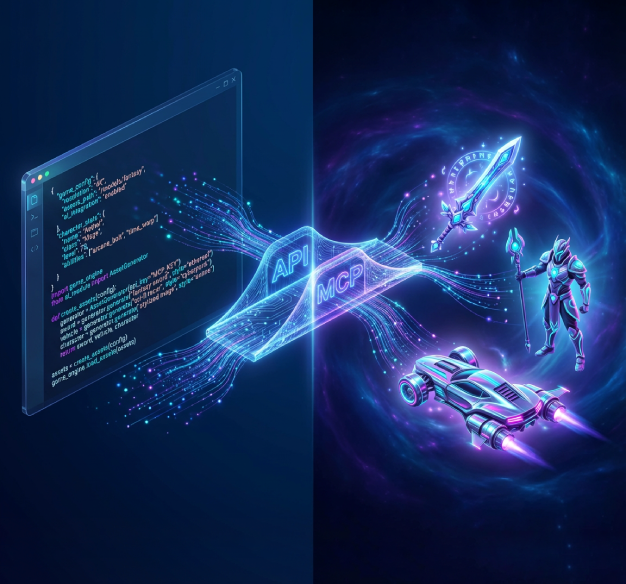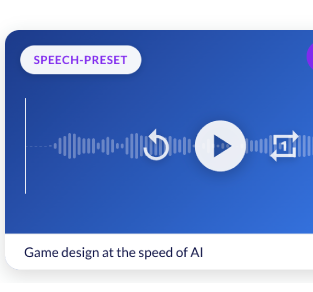
In the ever-evolving world of video game development and game design, pre-production stands as a critical phase where concepts come to life, and the groundwork for successful projects is laid. It's during this stage that the creative vision is shaped, making it both an exciting and daunting process.
Having the wrong or insufficient pre-production phase can spell doom for a game studio from a financial standpoint. Choosing the wrong game concept and not tapping into market insights to capitalize on trending game choices can make or break a game’s post-production sales, marketing, monetization, and optimization.
Enter Ludo.ai, a groundbreaking suite of AI-powered tools designed to revolutionize how game developers approach this crucial phase.
Video Game Development Costs Are On The Rise As Competition Heats Up

According to PitchBook and Newzoo Games Market Data, video game development costs are rising by the year. Unity’s recent pricing changes significantly undermined developer trust in the company and underscored the Unity-Epic duopoly (Unity has emerged as the preferred platform for mobile and indie developers due to its ease of use, while AAA developers prefer Epic’s Unreal engine).
Gamers are becoming more demanding with their video game purchases thanks to abundant choices. Not only do gamers have big studio releases such as Diablo, Grand Theft Auto, Call of Duty, and Baldur’s Gate to choose from, but the gaming industry as a whole has blown wide open with fierce competition from indie studios, “one-man” game studios, modders, and fan-made games/remakes that are also available on PC.
In PC gaming, Steam Workshop, mod.io, Nexus Mods, and the availability of other custom Patreon-funded mods give huge replayability to existing video games and franchises. A community modder by the name of PrayDog has released a series of VR mods for the popular game franchise Resident Evil as well as his UEVR injector project (Unreal Engine Virtual Reality), turning flatscreen games into VR games with 6DOF (directions of freedom) controls.
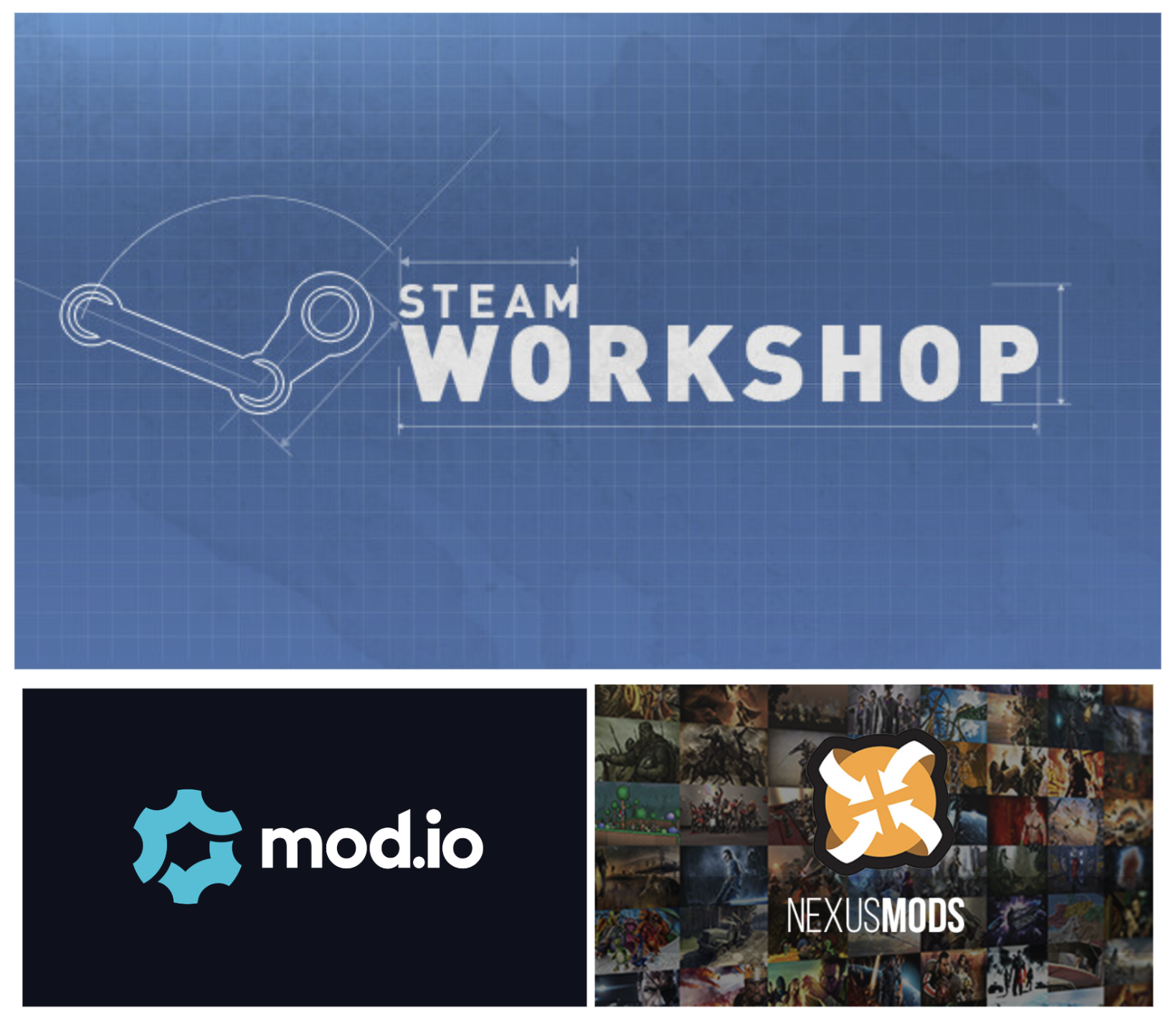
Simulation games (such as sim racing, flight sims, and truck sims) are gaining mainstream traction thanks to technological advancement in video game peripherals such as direct drive force feedback wheels (DD FFB), haptic feedback pedals, and flight control HOTAS (hands-on throttle and stick) controllers.
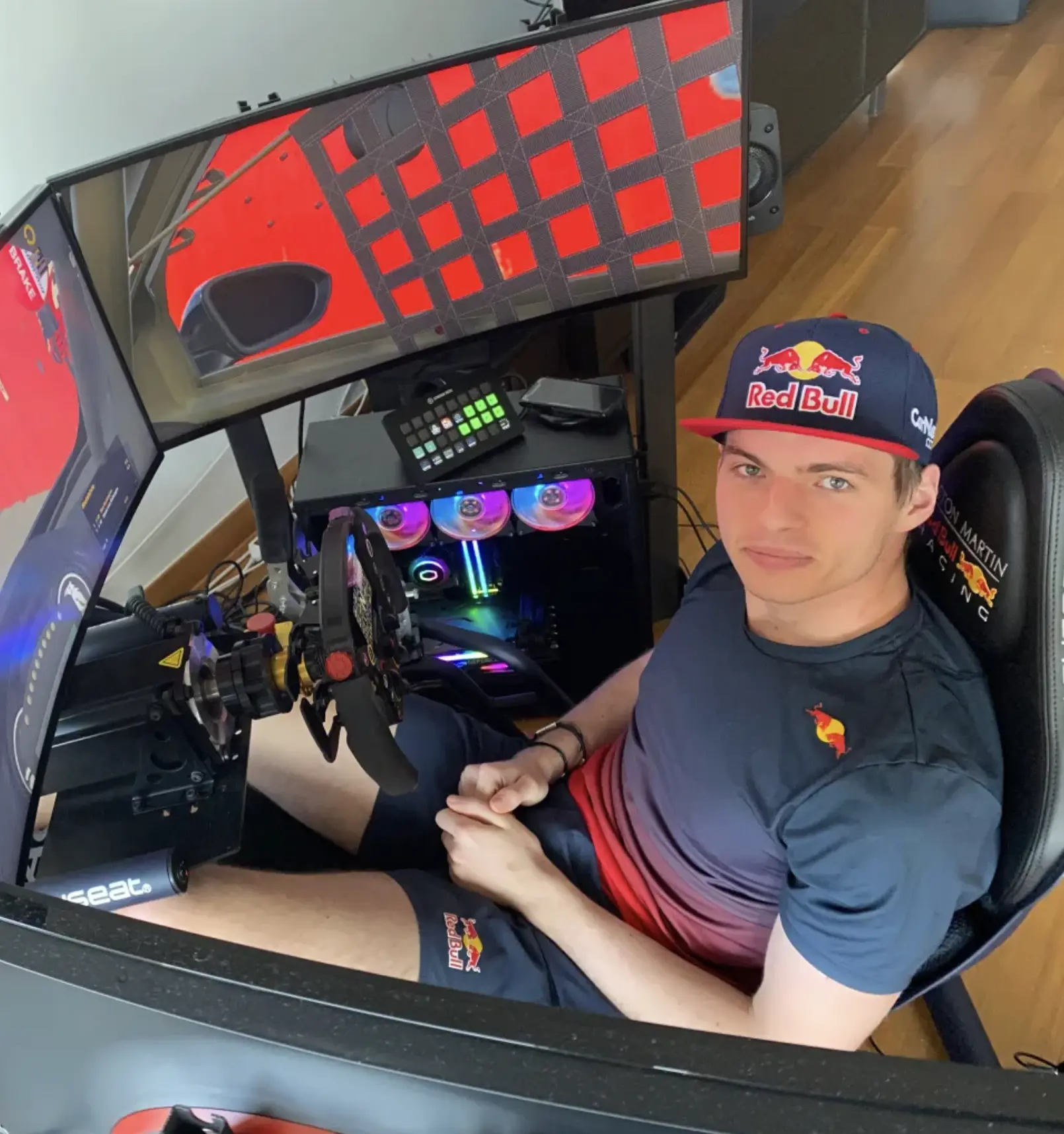
Professional race car drivers like Max Verstappen have brought mainstream popularity to a niche genre in gaming - simulation racing - or sim racing for short. Not only is he one of the best professional drivers in the world, but Max is also incredibly vocal and supportive of the sim racing community, expressing his love and enjoyment of sim racing video games as he claims they help him with his real-life driving.
Meanwhile, thanks to the releases of the recent Meta Quest 3 and Apple Vision Pro virtual reality headsets or head-mounted displays (HMDs), Virtual Reality / Mixed Reality / Augmented Reality games are finally attracting mainstream attention since the releases of Skyrim VR and Half-Life Alyx.
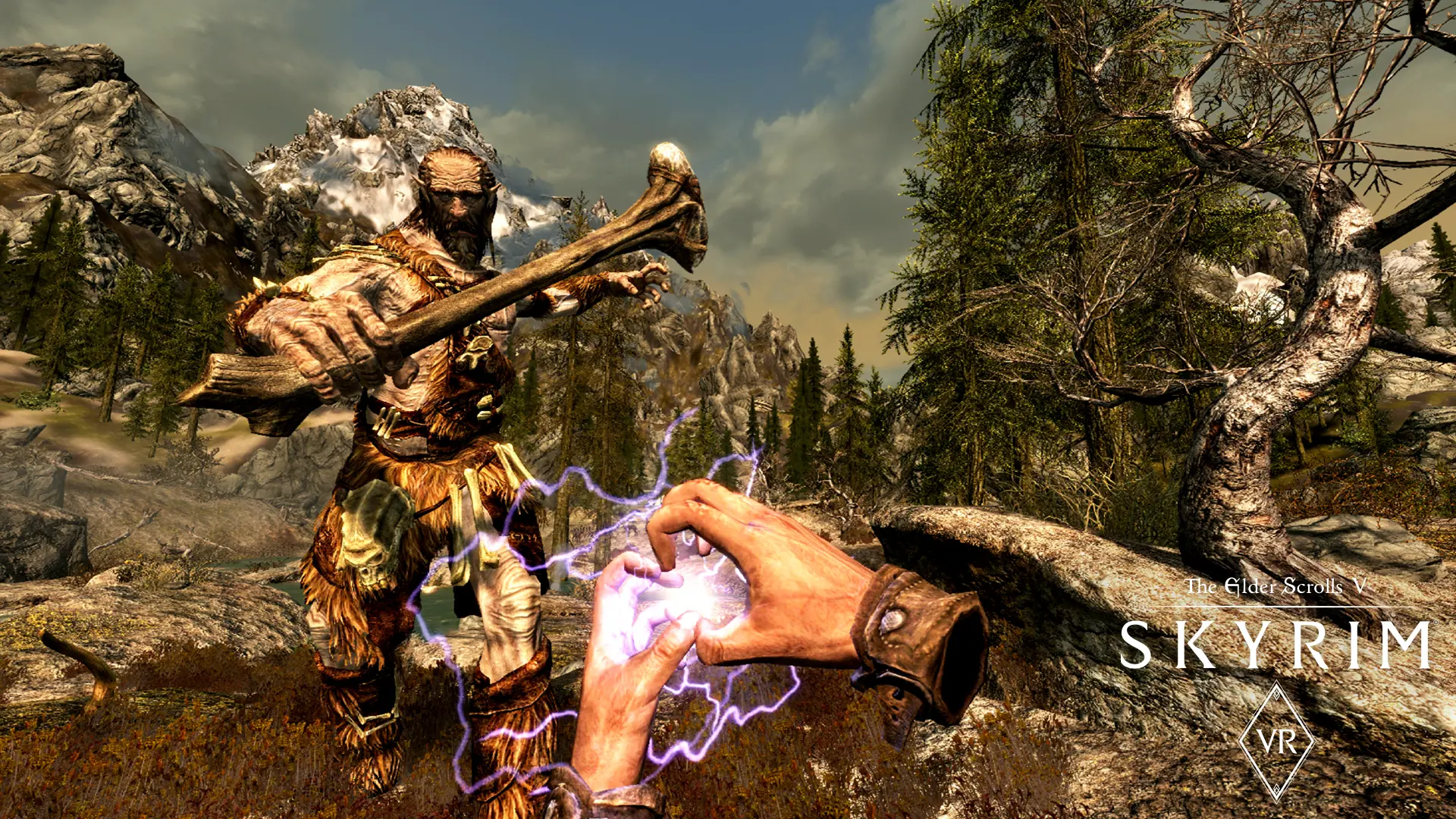
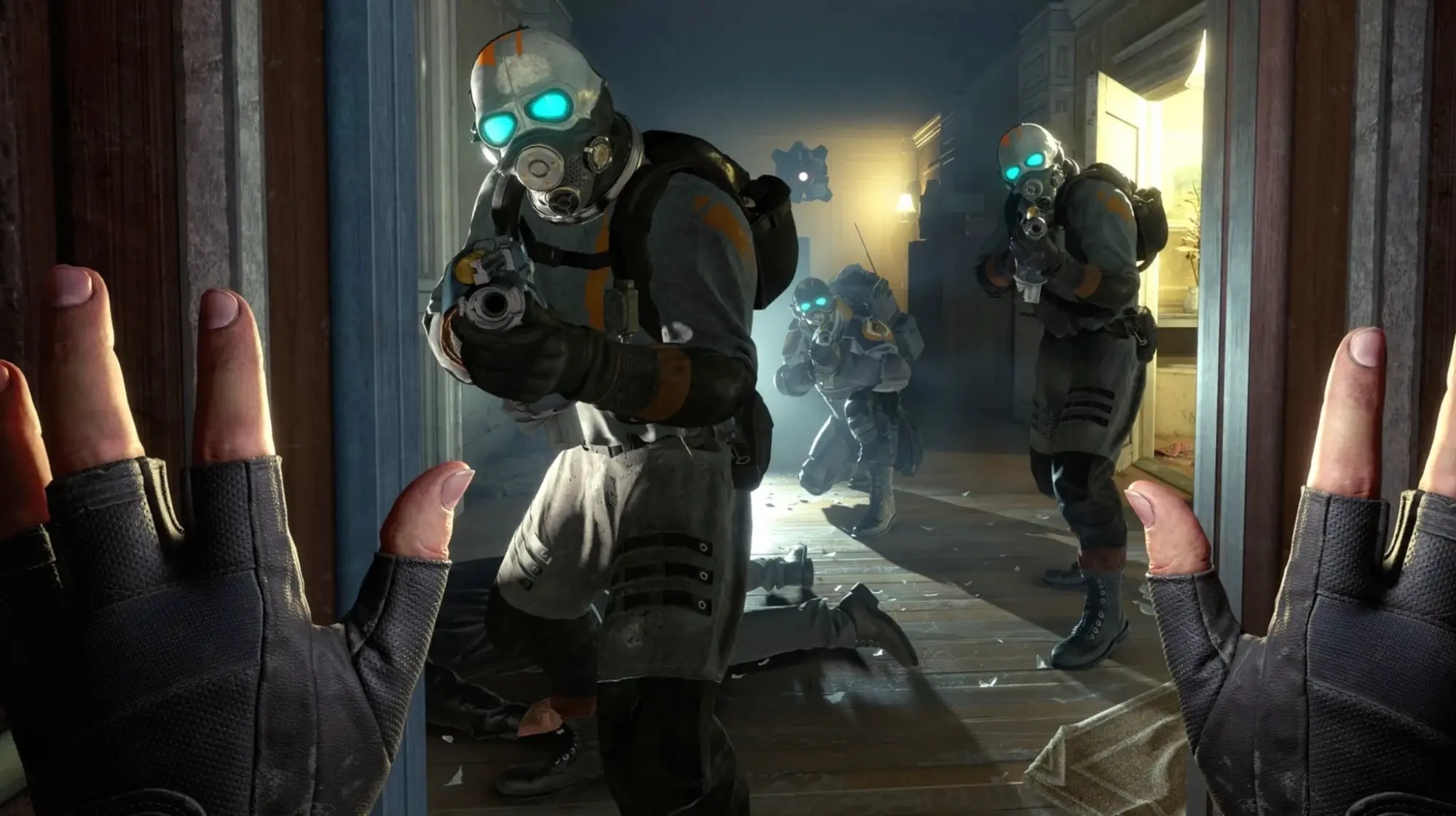
We are now seeing more studios willing to invest in VR titles, even AAA titles, producing games such as Assassin’s Creed Nexus, Asgard’s Wrath 1 & 2, and the upcoming Metro Awakening.
The Double-Edged Sword of Introducing New Technology in Video Games
While the cost for AAA game titles is well known and well documented, comparable to budgets used for crowd-pleasing summer blockbuster Hollywood films and superhero franchises, development costs for big and indie mobile game studios alike are still on the rise.
This can mean that sometimes games are produced at a loss or don’t turn in any profit. This is due to the growing demand for advanced skills needed to make great immersive gaming experiences.
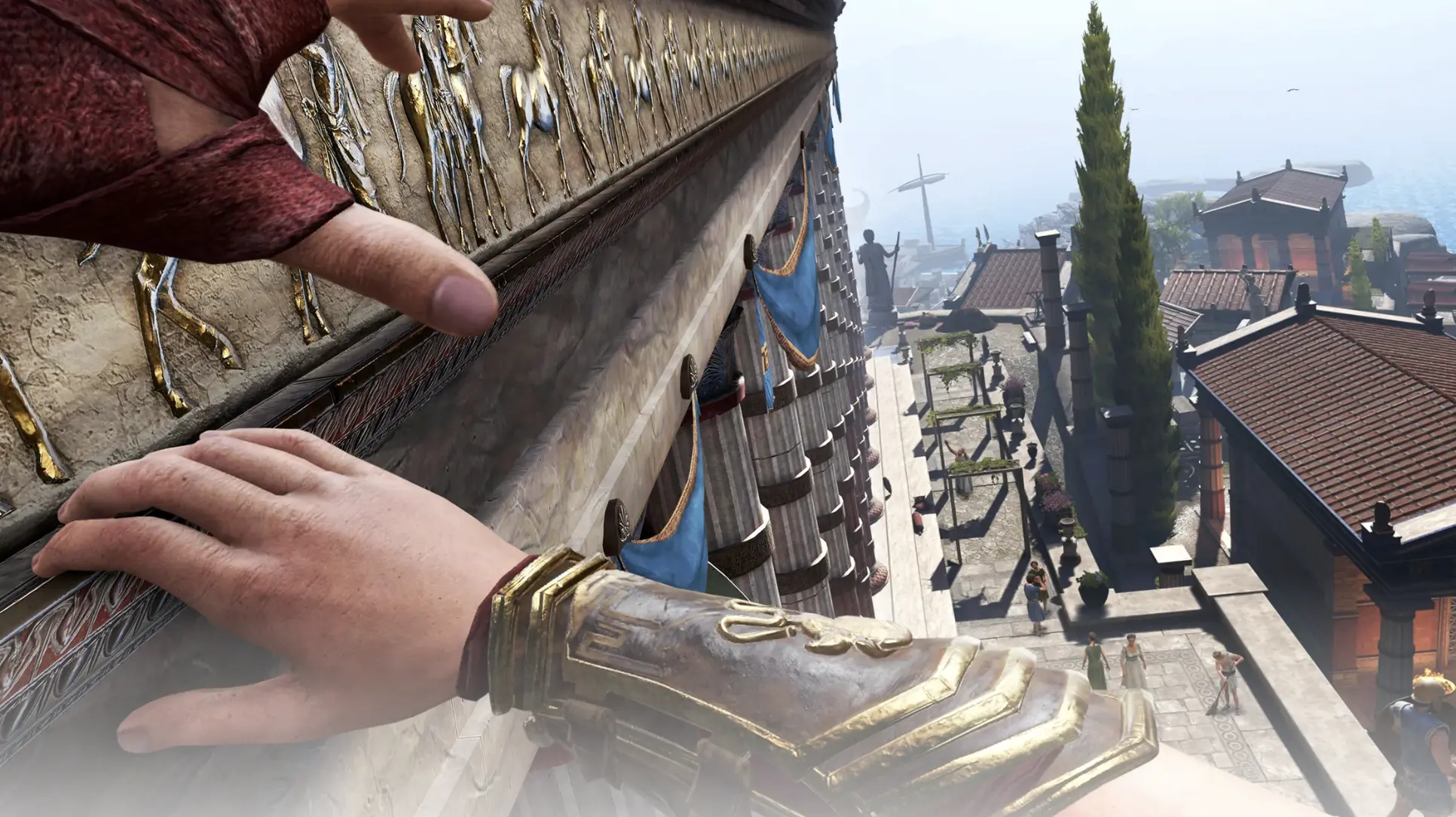
In a bit of ironic news, Ubisoft commented recently regarding Assassin’s Creed Nexus: Ubisoft Will Not Increase Investment in VR Following Disappointing Sales of Assassin's Creed Nexus VR. "It continues to sell, but we thought it would sell more." We had hoped that big studios dipping their toes into AAA VR releases could mean bringing more big studio interest to the genre of VR gaming, but it seems the cost has not been worth it.
The adoption of new technologies like VR, AR, and advanced AI increases development complexity and cost. Implementing these features requires specialized skills and equipment. As games become more complex, the size of development teams has grown as well. This includes not just programmers, but artists, designers, writers, and marketing professionals, all of which contribute to higher labor costs.
The Hidden Costs of Video Games: Post-Launch Promotion & Content

Naughty Dog decided to cancel their game The Last Of Us Online: “There's no easy way to say this: We've made the incredibly difficult decision to stop development on that game. To release and support The Last of Us Online we’d have to put all our studio resources behind supporting post-launch content for years to come, severely impacting the development of future single-player games. So, we had two paths in front of us: become a solely live service games studio or continue to focus on single-player narrative games that have defined Naughty Dog’s heritage.”
Lastly, the costs associated with marketing, promoting, and maintaining games have also increased throughout recent years and are often hidden or unsuspected.
Standing out in a crowded market often requires significant investment in marketing campaigns, customer service, and post-release updates such as patches and downloadable content (DLCs).
Not to mention, if your game is a multiplayer game, it will also require dedicated servers to host your games online. This effectively turns your video game studio into a live game streaming service studio, which requires year-round upkeep and maintenance and not much time or resources left to make other games.
These add-on costs did not use to be part of the cost of video game development, as old-school console-based games were often final products at their time of release and did not have an online/multiplayer component.
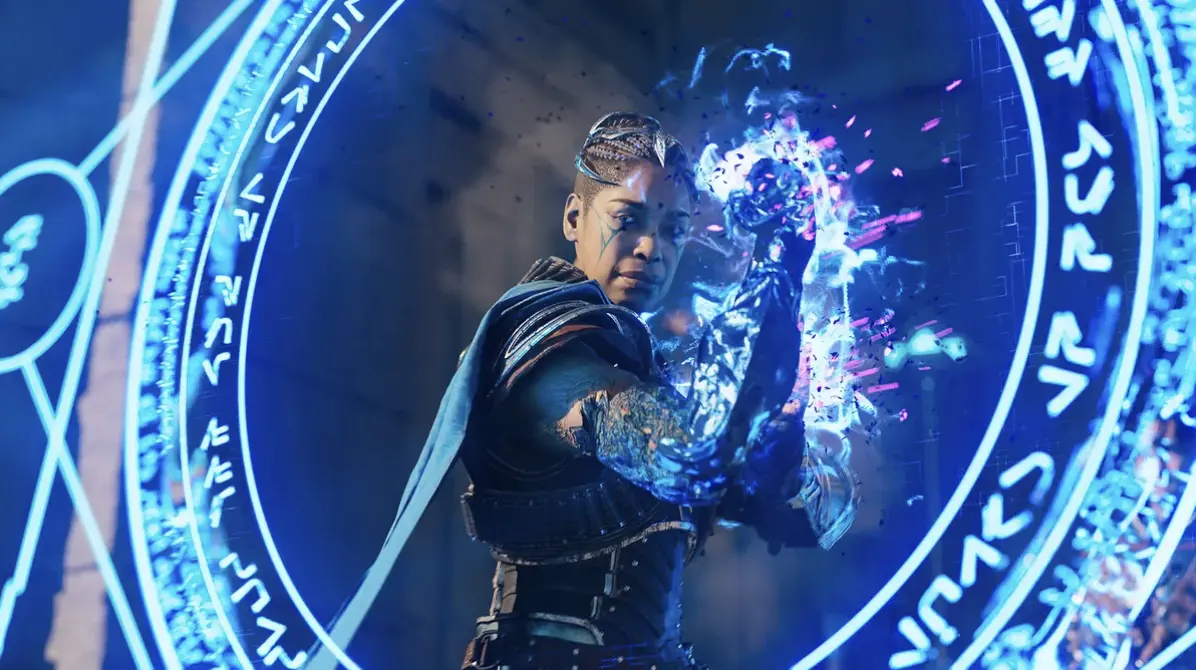
EA flop Immortals of Aveum reportedly cost around $125 million, former dev says "a AAA single-player shooter in today's market was a truly awful idea".
The Importance of Video Game Design Pre-Production
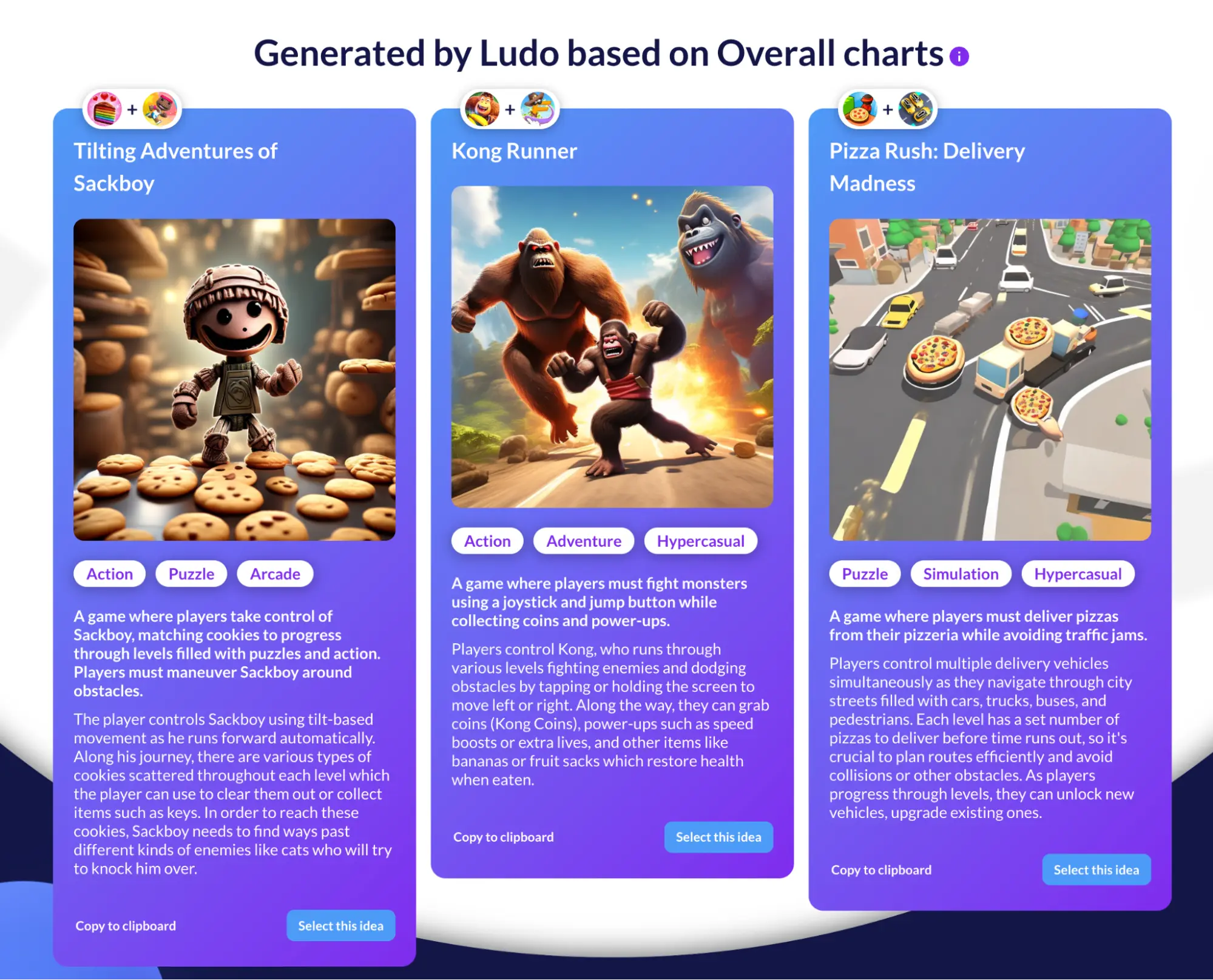
Ludo.ai brings forth a revolution in video game pre-production. Produce game concepts, ideas, and game design documents using the power of AI and smart tools such as chart analysis and trend monitoring. In seconds, video game developers can create a game concept that’s trending in sales and popularity right now.
How do game studios, or indie developers, compete with AAA games and come up with a game concept or idea that will not only be fun to play but be popular on the sales charts?
Pre-production is the backbone of game development, involving everything from concept ideation to prototyping. It's where teams define the game's core mechanics, story, characters, and aesthetics.
However, this phase can be time-consuming and resource-intensive, often requiring numerous iterations to refine ideas into actionable plans.
AI-Assisted Game Development with Ludo.ai - How Pre-Production Saves Costs on Video Game Development & Production
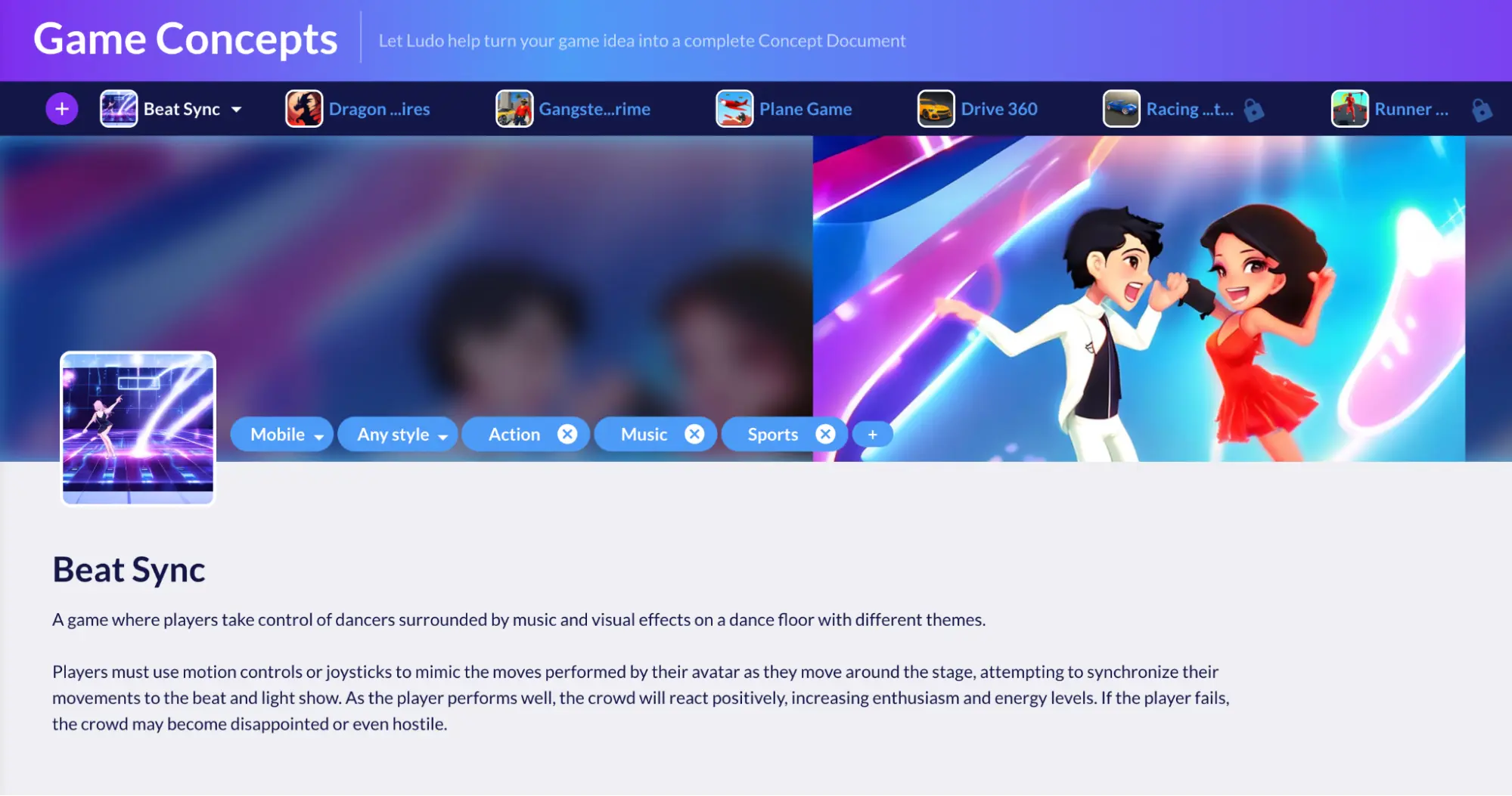
The Ludo.ai Game Concept Generator. By combining popular existing game titles Beat Saber and Pistol Whip and the keyword “dancing”, we produced a game concept called “Beat Sync”. We saved the concept to our Game Design Document and generated the rest of the game’s mechanics, descriptions, and gameplay images as well.
When talking about how artificial intelligence intersects with creativity, content creation, and in this case, video game creation, many users believe that AI alone can replace entire production processes and create / code video games on their own.
While that level of AI technology is still far away from being developed, Ludo.ai has stepped in as a beacon of innovation to help video game developers design and conceptualize their games in a much more efficient manner than ever before.
By harnessing the power of artificial intelligence, Ludo.ai enables rapid conceptualization, prototyping, and testing of game concepts and art, streamlining the workflow significantly and offering game developers an array of tools that transform the video game pre-production process.

We at Ludo.ai believe that the Pre-Production phase of a video game project is grossly misunderstood, misused, underestimated, and underutilized. Producing a video game that has the wrong game mechanic or concept can cost both large and indie studios precious resources, time, and money.
Not to be confused with AI that “makes games” or an “AI game maker”, Ludo.ai helps remove creativity roadblocks, and analysis paralysis, and helps with production through the following suite of tools:
- AI-Powered Video Generation: Create and test gameplay scenarios with AI-generated videos, allowing for quick iteration and visualization of ideas. No need to code anything - see your game live right away.
- AI-Powered Image Generation: Conceptualize environments, characters, and concept art with AI that turns ideas into visual representations effortlessly. No need to hire artists just yet - see your game represented in visual graphics and gameplay imagery.
- AI-Powered Game Ideation and Concept Generation: Break through creative blocks with AI that suggest unique game concepts, mechanics, and themes. No need to hire writers - conceptualize your game’s storyline and descriptions with AI first.
- AI-Powered Game Charts and Market Analysis: Powerful tools that research game trends, concepts, and competitive analysis - helping you to come up with the next hit game without guesswork. This saves game developers and studios alike time and money so you don’t choose the wrong type of game to make that is selling poorly or isn’t popular with the market
- Game Design Documentation Software: Keep your team aligned with integrated documentation tools that organize and articulate game concepts. The better communication a team has, the less costly the development process will be as there won’t be assumptions made or blindspots.
All of these tools are included in Ludo.ai’s software, and they combine to form a powerful suite of tools that will save game developers money and time in video game production.
The Ludo.ai Advantage
With Ludo.ai, developers can navigate the complexities of game pre-production more efficiently, saving valuable time and resources. Ludo.ai tools, which are trained on thousands and thousands of existing video games, not only accelerate the creative process but also inspire innovation, allowing developers to explore new ideas and concepts that might otherwise be unattainable.
Moreover, Ludo.ai's software suite facilitates a more collaborative and flexible development environment. Teams can quickly generate and iterate on concepts, making decisions based on visual prototypes and AI-generated content. This agility is crucial in today's fast-paced gaming industry, where adapting to trends and player expectations can make the difference between a hit and a miss.
As the video game industry continues to grow and diversify, embracing AI platforms like Ludo.ai in pre-production becomes not just an advantage but a necessity. By leveraging AI to streamline the conceptual and design phases, developers can focus on what they do best: creating memorable, engaging games that captivate players worldwide.
Whether you are a big video game studio or a small indie mobile game developer - Ludo.ai is not just a platform but an innovation partner - paving the way for the future of game development.

